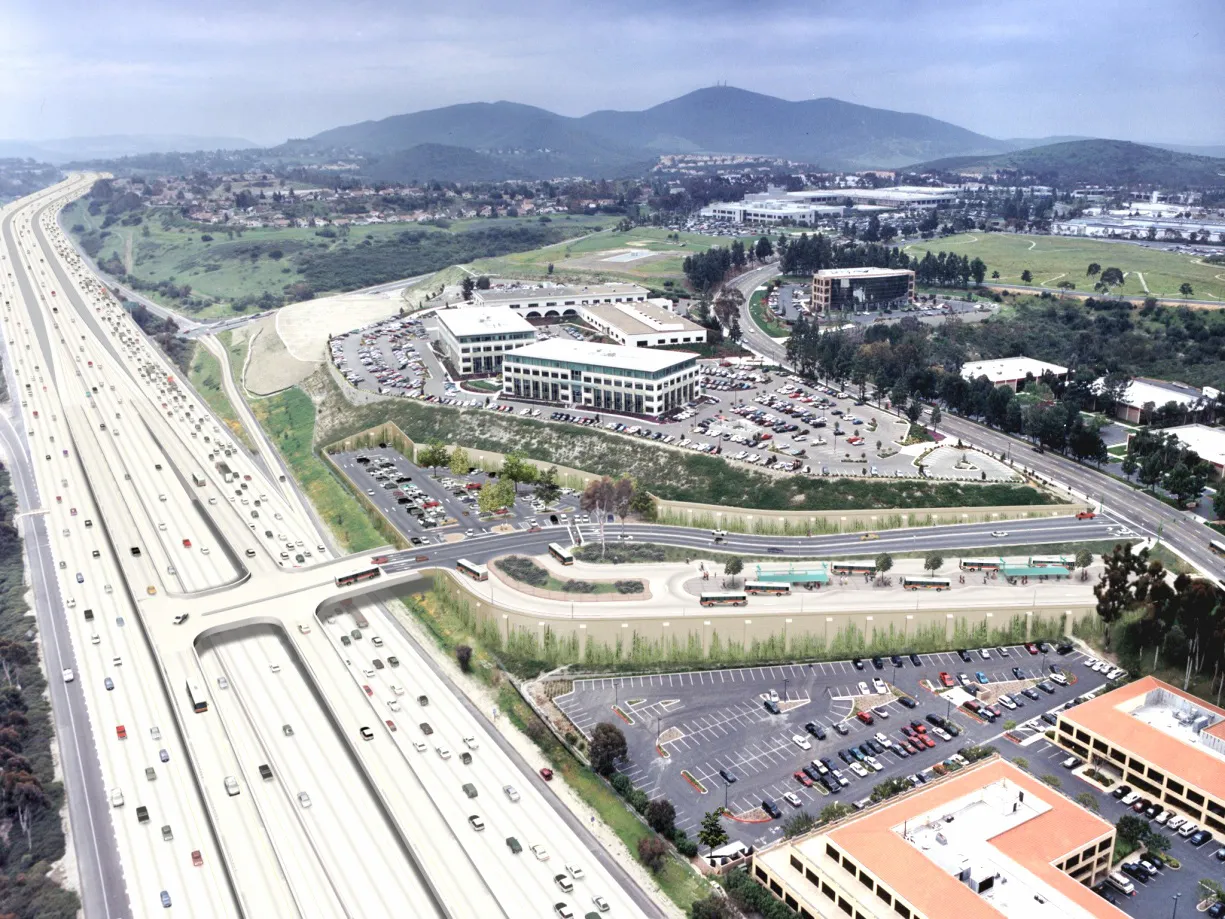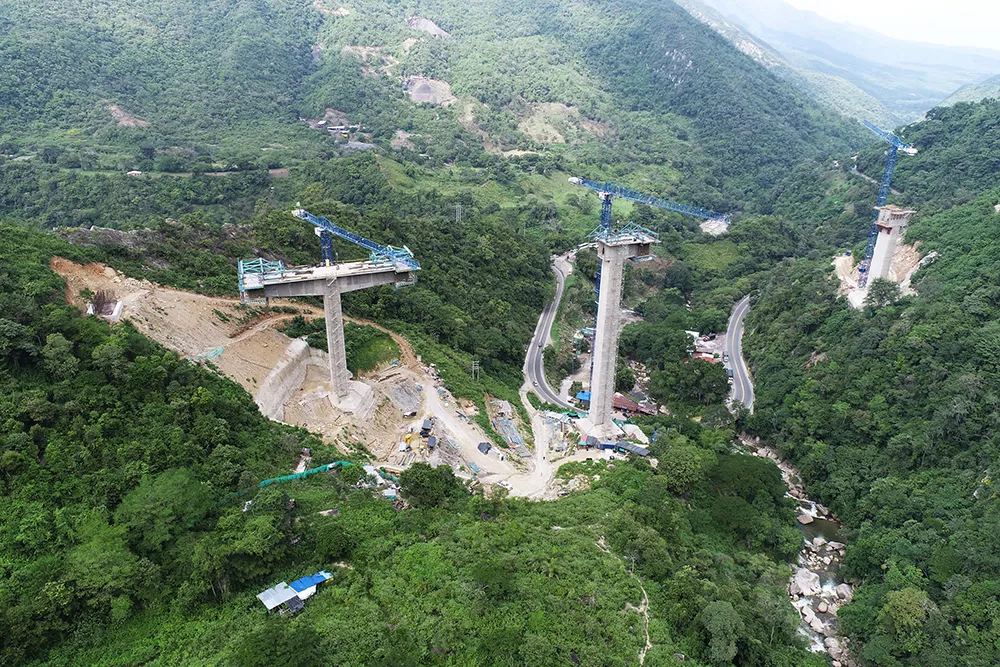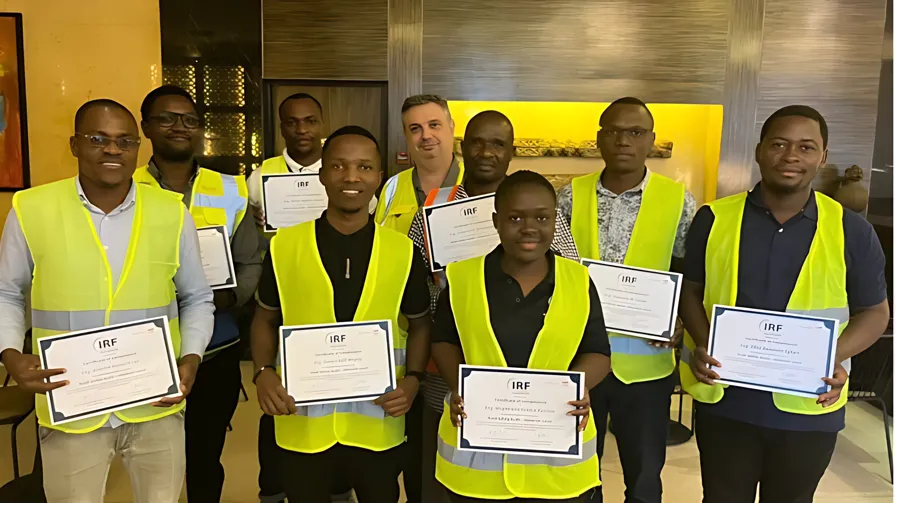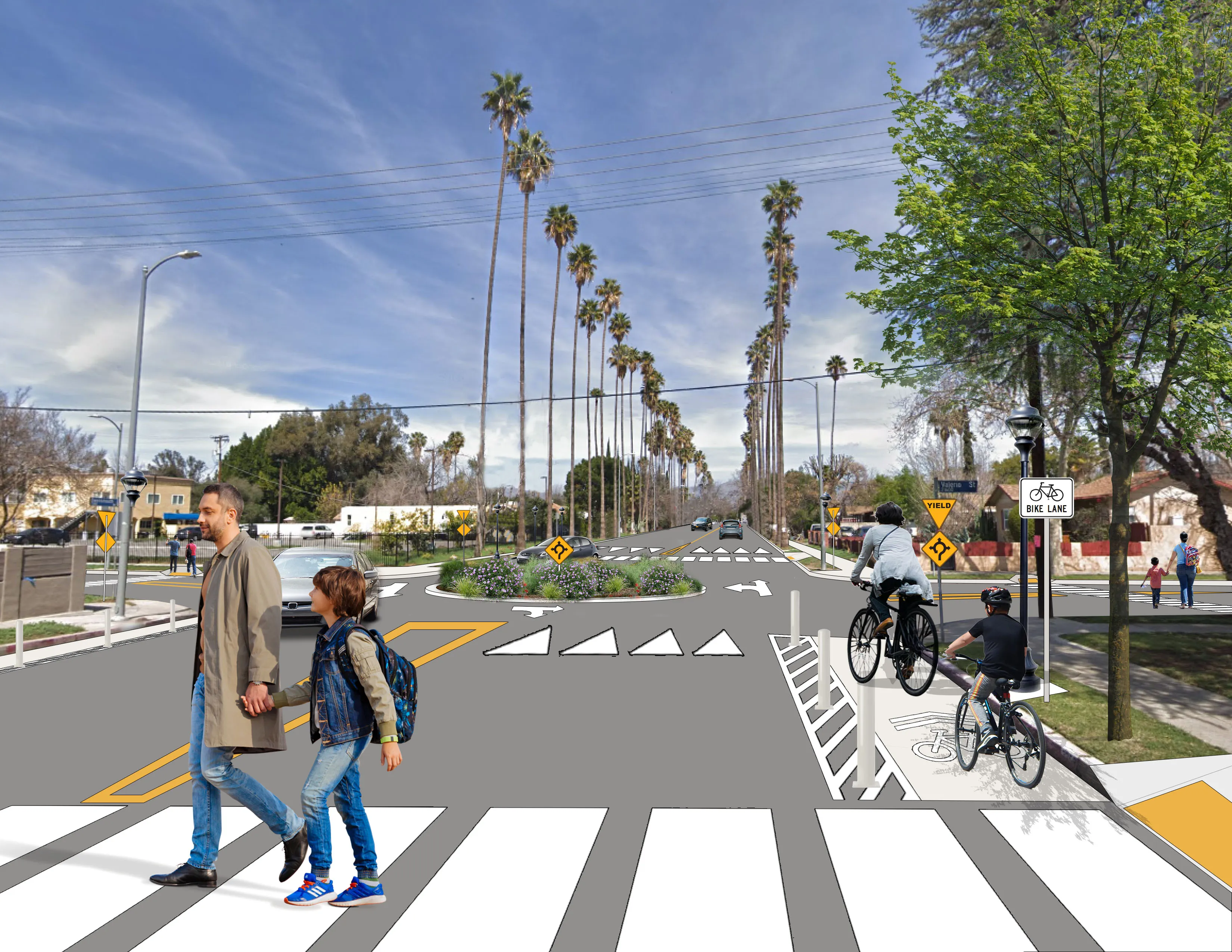
Within the next 20-30 years, climate scientists predict that the average temperature in LA will rise by 4-5°F, with the occurrence of extreme heat days (when temperatures exceed 95°F) dramatically increasing in LA’s San Fernando Valley (the Project’s location) to 92 days/year. In addition, historically car-centric planning in LA has contributed to the city’s average rate of children and older adults who die while walking to be double the national rate. Although LA is experiencing increased investment in public transit and active transportation projects, these projects often lack the essential urban cooling and green infrastructure elements that encourage residents to safely and comfortably walk and cycle.
In response to these challenges, the Urban Cooling Project acts as a key case study that lays the groundwork for the City of LA to enhance the resiliency and livability of its streets through a three-pronged program. The City prepared a toolkit of design solutions that reduce heat while facilitating comfortable and safe access to transit - encouraging mode shifts toward more sustainable forms of transportation. The City also initiated a robust community engagement process that vetted these design concepts for applicability across major LA street types, resulting in engaging video renderings capturing how the Project will look and feel. Lastly, the City developed a replicable and viable framework that positions it to secure grant funding to bring these concepts to life in Canoga Park and throughout Los Angeles.
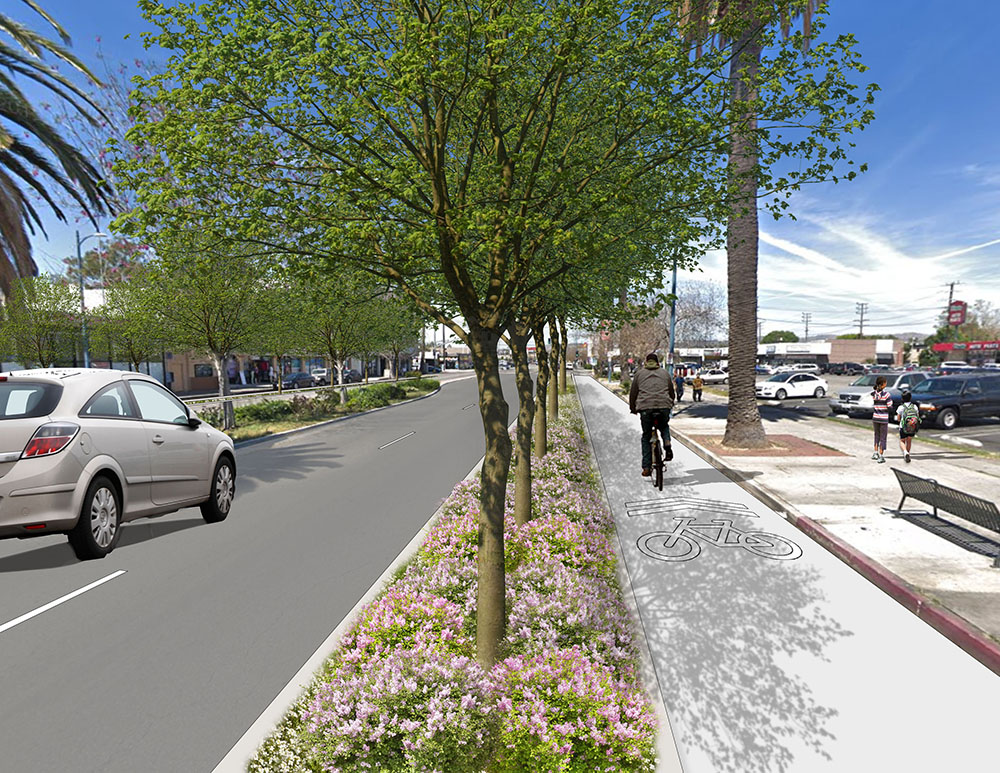 Over the course of the Project’s planning process, the Project team evaluated existing conditions and conducted traffic counts; compared effectiveness, limitations, and co-benefits of urban cooling technologies and First/Last mile strategies; and collaborated with more than 650 community members to understand key needs and define design strategies.
Over the course of the Project’s planning process, the Project team evaluated existing conditions and conducted traffic counts; compared effectiveness, limitations, and co-benefits of urban cooling technologies and First/Last mile strategies; and collaborated with more than 650 community members to understand key needs and define design strategies.
The selected urban cooling strategies considered their applicability to LA’s major road typologies: a major arterial; a neighbourhood street; and a multi-use trail. Additionally, the Project expanded on the City’s Cool Streets Program’s street surface coating studies which demonstrated how ‘reflective cool pavement’ provides an average 11°F temperature reduction compared to the surrounding regular pavement during the hottest hours of the day.
The Urban Cooling toolkit further enhances the effectiveness of the reflective cool pavement by pairing this innovative technology with green infrastructure and active transportation strategies including expanded urban tree canopies, landscaped parkways, shade structures, separated bikeway buffers, and First/Last mile facilities.
In 2021, the Project was awarded additional grant funding to implement its urban heat and transit design solutions and it continues to be a model of holistic streetscape planning. It demonstrates how the City of LA is making strides to retrofit its street assets for future climate resiliency while meeting the safety and design needs of non-motorised users by connecting them to their destinations and LA's public transit system.
Receiving the IRF Global Road Achievement Award on behalf of the City of Los Angeles, Keith Mozee, Executive Director & General Manager of the Bureau of Street Services (StreetsLA), City of Los Angeles noted “our holistic approach to streetscape planning is an example of how street improvements can combine the goals of safety and climate resiliency. This kind of integration is the future of infrastructure.”
GRAA: showcasing industry excellence
The International Road Federation’s Global Road Achievement Awards (GRAA) is a one-of-a kind competition to recognise innovative road projects and exemplary people that place the road industry at the forefront of worldwide social and economic development.
Instituted in 2000, the Awards have distinguished more than 185 programs, projects and products from around the world. For more information, please visit www.irf.global/graa


